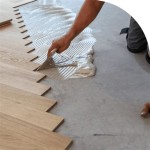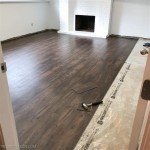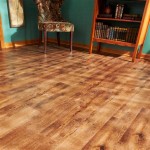Vinyl Plank Flooring: Pros and Cons
Vinyl plank flooring has gained immense popularity in recent years due to its durability, affordability, and versatility. However, like any flooring option, it comes with its own set of advantages and disadvantages. This article will delve into the pros and cons of vinyl plank flooring to help you make an informed decision for your home.
Pros:
- Durability: Vinyl plank flooring is renowned for its exceptional durability. It is resistant to scratches, dents, and moisture, making it suitable for high-traffic areas and homes with children and pets.
- Waterproof: Unlike laminate or hardwood flooring, vinyl plank flooring is completely waterproof. It can withstand spills and moisture without warping or buckling, making it ideal for kitchens, bathrooms, and mudrooms.
- Affordability: Vinyl plank flooring is generally more affordable than other flooring options, such as hardwood or tile. It offers a stylish and durable alternative at a fraction of the cost.
- Easy Installation: Vinyl plank flooring is relatively easy to install, especially with click-lock or peel-and-stick systems. It can be installed as a floating floor or glued down, depending on your preference.
- Versatile: Vinyl plank flooring comes in a wide range of colors, patterns, and textures, allowing you to achieve a variety of looks from traditional to modern.
Cons:
- Environmental Concerns: Vinyl plank flooring is made from synthetic materials, which may contribute to environmental concerns. It is important to choose eco-friendly options if environmental sustainability is a priority.
- Potential Fading: Although vinyl plank flooring is resistant to fading, prolonged exposure to direct sunlight can cause some discoloration over time.
- Can Be Prone to Expansion: Vinyl plank flooring can expand or contract with changes in temperature and humidity. This can lead to gaps between planks or buckling if not properly installed.
- Not as Warm or Comfortable: Compared to natural materials like hardwood or carpet, vinyl plank flooring can feel colder or less comfortable underfoot, especially in colder climates.
- Difficult to Repair: If a vinyl plank is damaged, it can be challenging to repair or replace individual planks without removing the entire floor.
Conclusion
Vinyl plank flooring offers a compelling combination of durability, affordability, and versatility. However, it is important to weigh the pros and cons carefully to determine if it is the right choice for your home. By considering factors such as durability, moisture resistance, installation ease, environmental concerns, and comfort, you can make an informed decision that will enhance the style and functionality of your space.

Vinyl Flooring For Bathrooms Pros And Cons

Pros Cons Of Vinyl Plank Flooring Floor Techie

Luxury Vinyl Flooring Pros And Cons I Never Thought We D Do This To Our Main Floor Diy Life

Advantages Disadvantages Of Vinyl Plank Flooring Floorings
Pros And Cons Of Luxury Vinyl Flooring In Basements

Luxury Vinyl Flooring Pros And Cons I Never Thought We D Do This To Our Main Floor Diy Life

Vinyl Vs Laminate Flooring Pros Cons And Differences 2024 Forbes Home

Biggest Advantages Disadvantages Of Vinyl Plank Flooring

Vinyl Flooring Pros And Cons Forbes Home

Biggest Advantages Disadvantages Of Vinyl Plank Flooring
See Also







